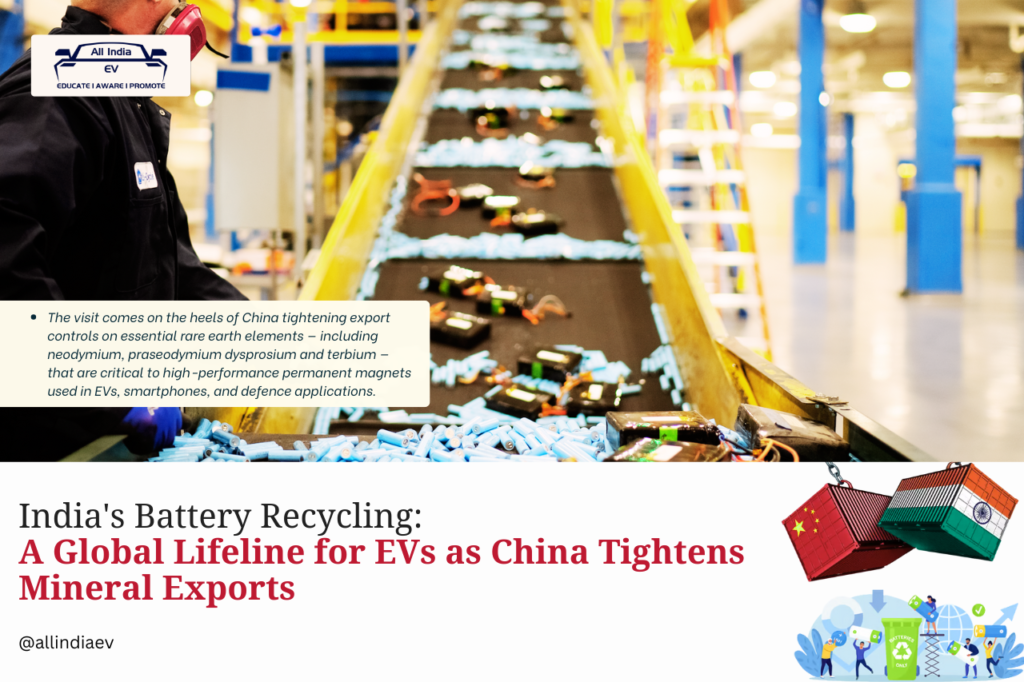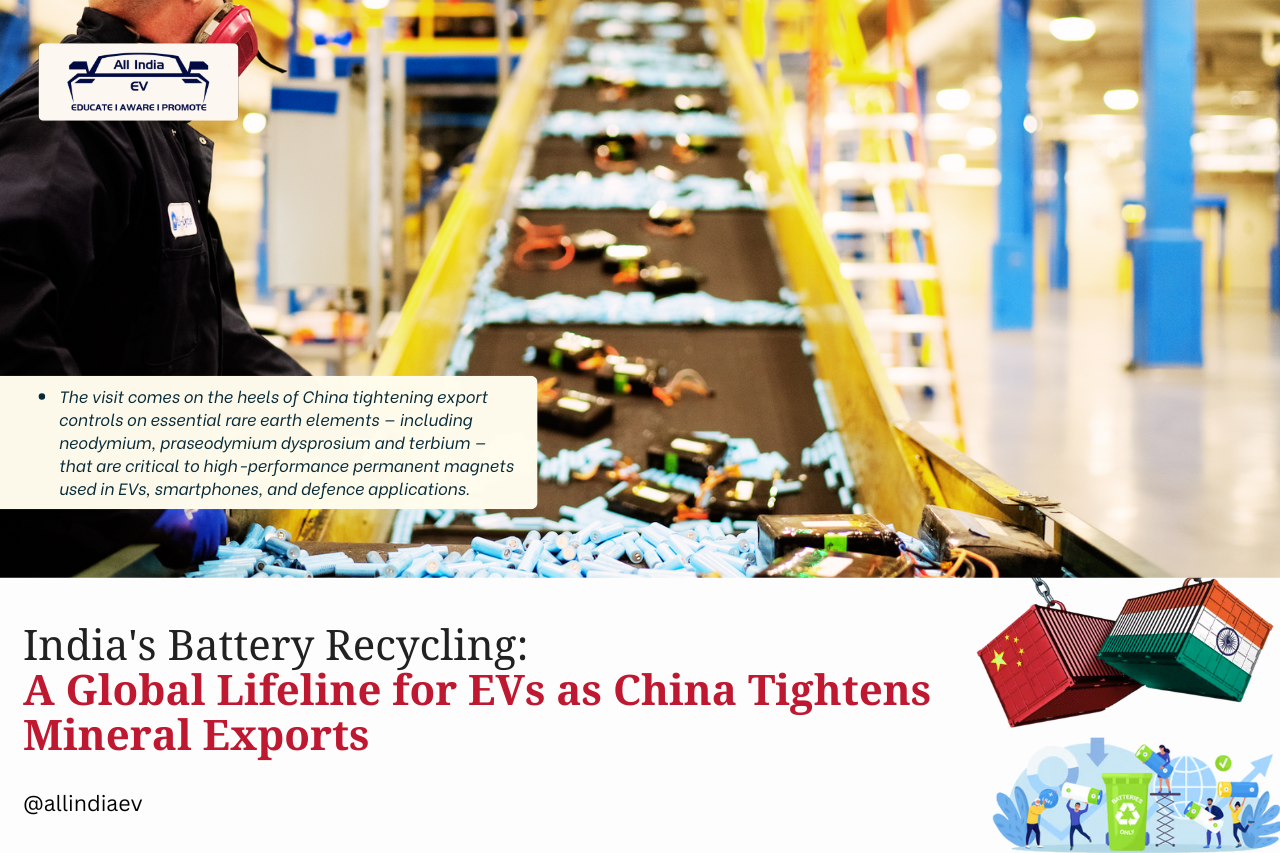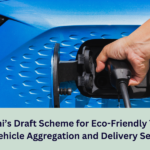
Amid China’s Rare Earth Export Curbs, Global Interest in India’s Battery Recycling Grows for Critical EV, Tech, and Defense Applications
As China enforces stricter controls on the export of key rare earth minerals, global electric vehicle (EV) manufacturers are turning their attention to India’s rapidly developing battery recycling industry as a vital alternative. With supply chains under pressure and mineral security becoming a strategic priority, India is poised to step into a more central role in the global EV ecosystem.
This week, a high-level Japanese delegation is visiting India to engage with key players in the recycling sector, including Vedanta and Lohum, as part of a broader effort to diversify away from China-dominated critical mineral supply chains.
Global Jitters Over China’s Rare Earth Controls
China’s recent decision to tighten exports of critical rare earth elements such as neodymium, praseodymium, dysprosium, and terbium—essential for manufacturing high-performance magnets used in EV motors, smartphones, and defense applications—has sent shockwaves through the global clean tech industry. The move has sparked fears of supply disruptions and surging input costs, particularly for automakers reliant on uninterrupted access to these resources.
India-Japan Cooperation Takes Center Stage
India and Japan are already in dialogue to chart a joint response strategy focused on supply chain resilience. These discussions are being formally advanced at the Battery and Critical Minerals Ecosystem Conference being hosted today at the Embassy of Japan in New Delhi.
The event has attracted participation from government officials, OEMs, financiers, and recycling firms from India, Japan, Australia, and the United States. Key topics include:
- Challenges in battery refining and recycling
- Identifying anchor customers and offtake partners
- Technology collaboration and funding mechanisms
Experts attending the conference emphasized that while lithium exploration is gaining momentum in India, recycling offers a faster and more scalable path to securing critical materials and reducing import dependence.
Closed-Door B2B Meetings and Strategic Financing
The event will also host private business-to-business (B2B) discussions involving Indian recyclers, global OEMs, and major financial institutions including:
- Japan Bank for International Cooperation (JBIC)
- Tata Capital’s Decarbonisation Fund
- International Finance Corporation (IFC)
These meetings will explore key enablers for the sector—such as long-term offtake agreements, joint R&D initiatives, and project bankability—seen as essential to scaling up India’s recycling capacity and reducing global dependence on traditional refining powerhouses.
A New Role for India in the EV Value Chain
As the global clean energy transition picks up pace, battery recycling is being redefined—not just as a sustainability imperative, but as a strategic lever in securing mineral independence. For India, this presents a unique opportunity to position itself as a trusted, democratic partner in the global EV and clean tech supply chain.
India’s emerging recycling industry could be the game-changer the global EV market needs amid geopolitical uncertainties. With proactive government backing, global collaborations, and increasing investor interest, the country is well-positioned to become a critical minerals hub for the world. As China tightens its grip, India’s open market and innovation ecosystem offer a promising path forward for resilient and sustainable electric mobility.










